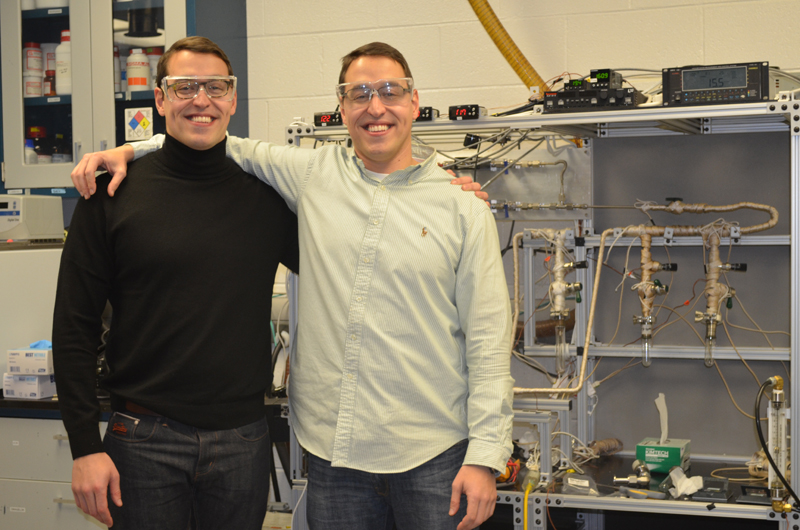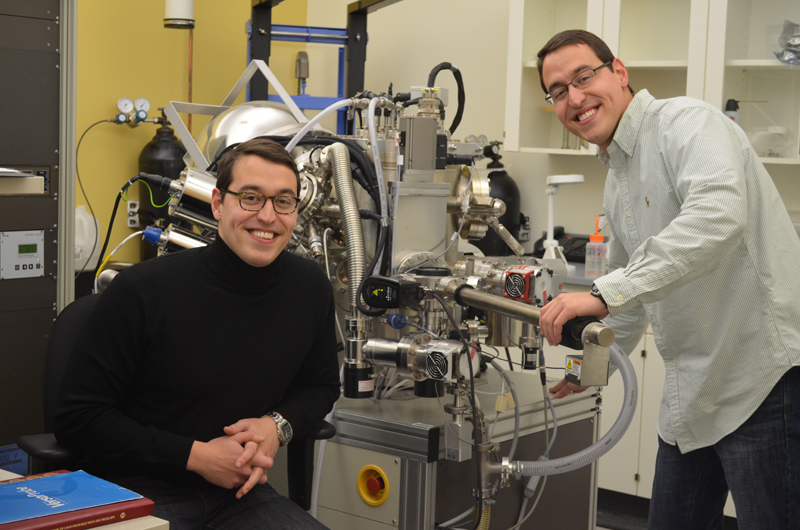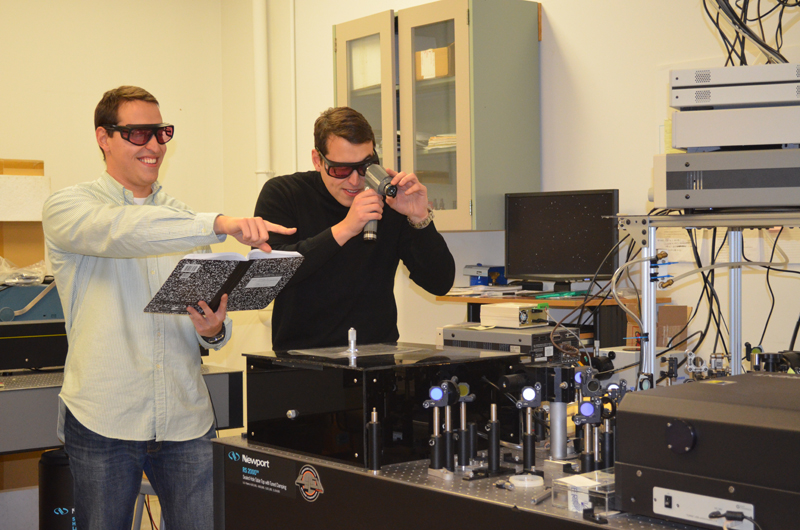 Yuriy and Sergey Smolin are both grateful to their parents for making them the industrious and motivated individuals they are today. When the twins were 5-years-old, the Smolin family fled Russia and came to America in search of a better life. Their father, a doctor, and their mother, a railroad engineer, left their professional positions and were forced to initially live on welfare until they could find work to support their four children. Their father finally found work as a server at a Dunkin’ Donuts during the day and as a pizza delivery person at night; their mother sold flowers at a roadside stand. They took classes at night to learn English and to earn their degrees.
Yuriy and Sergey Smolin are both grateful to their parents for making them the industrious and motivated individuals they are today. When the twins were 5-years-old, the Smolin family fled Russia and came to America in search of a better life. Their father, a doctor, and their mother, a railroad engineer, left their professional positions and were forced to initially live on welfare until they could find work to support their four children. Their father finally found work as a server at a Dunkin’ Donuts during the day and as a pizza delivery person at night; their mother sold flowers at a roadside stand. They took classes at night to learn English and to earn their degrees.
This admirable work ethic and love of learning was a constant for the Smolin twins. Sergey, interested in solar energy at an early age, fondly remembers his father buying a K’Nex kit for his seventh birthday. He spent the rest of the day building a miniature ferris wheel which spun from energy collected from a solar panel. “The gift left me with a fascination for science and an appreciation for the impact of an ostensibly small gift,” say Sergey. Yuriy adds, “Our parents instilled in us the ideal of working hard and having a pioneering spirit in everything we did.”
Yuriy and Sergey are both Ph.D. candidates in the College of Engineering’s Chemical and Biological Engineering Department (CBE). Yuriy was first attracted to the CoE’s excellent reputation for renewable energy research. He joined a research project with Professors Masoud Soroush and Kenneth Lau on the exploration of innovative material development in polymers for energy storage and harvesting devices. His work highlights using an integrated strategy involving first-principles modeling, synthesis, and characterization to discover new polymers for solar conversion and energy storage applications. His experimental work has shown that integrating polymers can improve solar power conversion efficiency by over 50% in dye-sensitized solar cells and can also double the energy storage in nanoporous supercapacitors. Furthermore his first-principles modeling work, which is coupled to his experimental work, provided novel insight into how polymer chemistry affects dye sensitized solar cell performance, and has shown that one can tune current-voltage behavior based on chemistry. His work has been published in prestigious publications such as the Journal of Power Sources, ACS Nano, Thin Solid Films, and AIMS Materials Science.
 Sergey’s research involves using ultrafast transient absorption/reflection spectroscopy to study emerging solar materials at their fundamental level. Working with Professors Jason Baxter and Steven May, Sergey studies perovskite oxide thin films for their photovoltaic potential. The research seeks to facilitate advancements which will lead to longer carrier lifetimes in these materials and the emergence of a new material class for solar technology. His work has been published in Applied Physics Letters, Chemistry of Materials, and submitted to the Proceedings of the National Academy of Sciences.
Sergey’s research involves using ultrafast transient absorption/reflection spectroscopy to study emerging solar materials at their fundamental level. Working with Professors Jason Baxter and Steven May, Sergey studies perovskite oxide thin films for their photovoltaic potential. The research seeks to facilitate advancements which will lead to longer carrier lifetimes in these materials and the emergence of a new material class for solar technology. His work has been published in Applied Physics Letters, Chemistry of Materials, and submitted to the Proceedings of the National Academy of Sciences.
Neither of the twins are short on extracurricular activity—academic or otherwise! Yuriy has served as president of the CBE Graduate Student Association, which organizes academic, social and cultural events to improve the graduate student experience. He’s mentored five undergraduate engineering students with their research in fundamental reaction kinetics and has guided six other undergraduate students who are working on Drexel’s Smart House to incorporate dye-sensitized solar cells into window shades—something that has never been done before. Sergey, also contributing much to the College, has assisted in forming a research collaboration with the renowned Marcus Baer group at Helmholtz-Zentrum Berlin, a German research laboratory. He has also formed relationships with researchers at the University of Pennsylvania, Stanford University, Brookhaven National Laboratory and Pacific Northwestern National Laboratory.
Throughout their time at Drexel, the twins have been outstanding students. Both were honored to be recipients of the George Hill, Jr. Endowed Fellowship Award, the Koerner Family Fellowship Award, and the Chemical and Biological Engineering Department’s Outstanding Ph.D. Student Award. Sergey was also a recipient of the DAAD Rise PRO Fellowship where he spent his summer working with the renowned Macrus Baer group in Germany. Yuriy was honored to be a 2015 W. L. Gore Fellow Award Finalist and is currently a fellow for the Department of Education’s NAE Grand Challenges GAANN.
 The twins agree that they often reflect on the sacrifices their parents made to ensure a quality education for their children so that each would have the opportunity for a promising career. “It seems strange—and a bit amusing—that as a Ph.D. student, I trace my intellectual stimulus to a K’Nex kit. But that kit created a small spark for my love of science that has grown in the past 20 years into a fire of dedication for research and engineering,” says Sergey. Yuriy adds, “We are deeply grateful for the support we have received from teachers, mentors, friends, and of course, our parents. We also feel very fortunate for the outstanding resources we have here at Drexel, that have allowed for intense and extremely rewarding work.”
The twins agree that they often reflect on the sacrifices their parents made to ensure a quality education for their children so that each would have the opportunity for a promising career. “It seems strange—and a bit amusing—that as a Ph.D. student, I trace my intellectual stimulus to a K’Nex kit. But that kit created a small spark for my love of science that has grown in the past 20 years into a fire of dedication for research and engineering,” says Sergey. Yuriy adds, “We are deeply grateful for the support we have received from teachers, mentors, friends, and of course, our parents. We also feel very fortunate for the outstanding resources we have here at Drexel, that have allowed for intense and extremely rewarding work.”